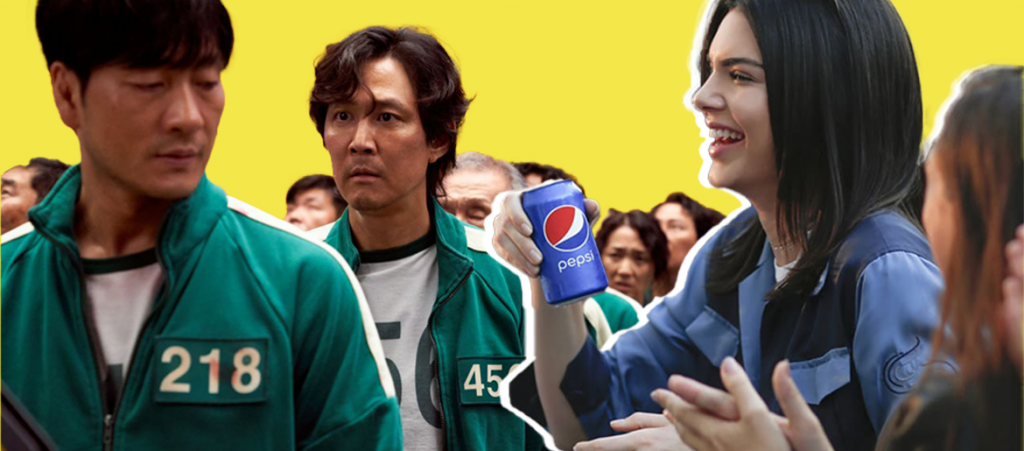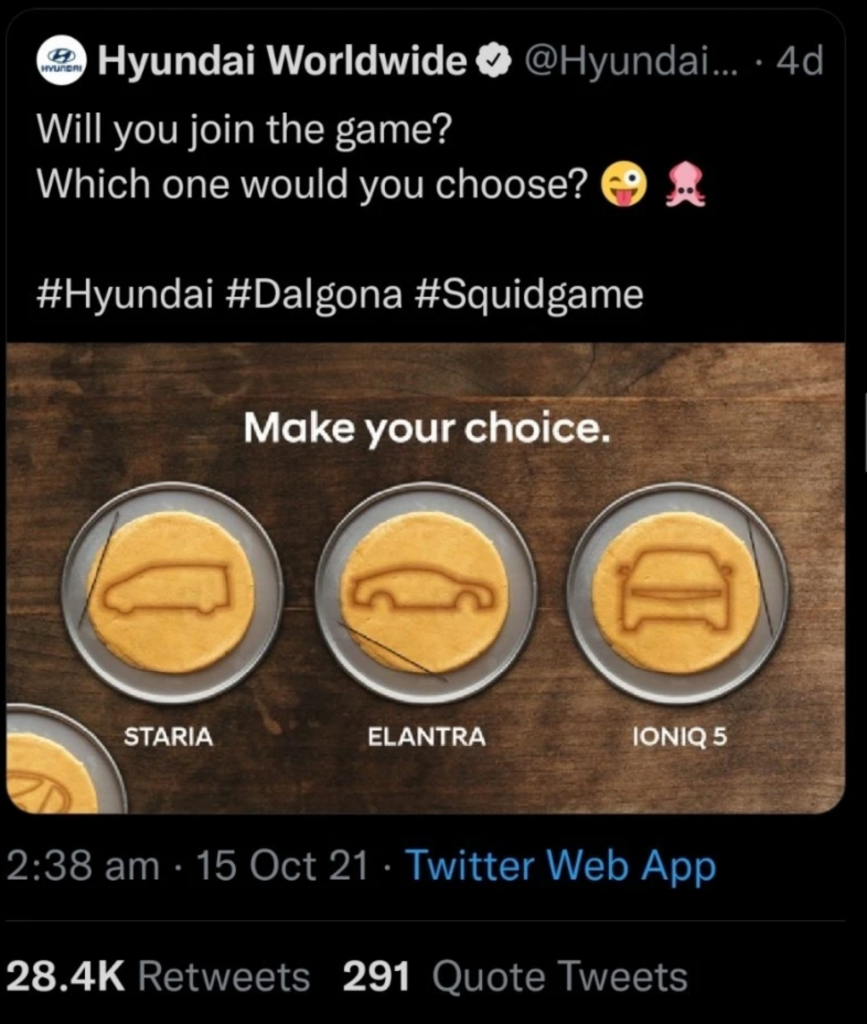
First things first: Yes, I watched Squid Game like the rest of you – with my hands covering my face and a high heart rate. The message of the South Korean drama hit me hard. What kind of desperation does extreme capitalism, and the growing gulf between the rich and the poor, create in us? But then I started to see the Squid Game brand memes … Think Toyota and Pepsi, influencers turning Squid Game into content challenges, and even Labor MP Bill Shorten referencing the show in a nonsensical criticism of the Coalition.
Our eagerness to turn the show into a commercial trend totally misses the serious message it asks us to consider – here’s why all those Squid Game memes and marketing ploys might be making you feel a bit uncomfy.
What is the message of Squid Game?
Writer and creator of the show, Hwang Dong-hyuk came up with the idea for the story based on the extreme class divide and inequality in South Korea. He experienced financial struggles himself, living with and being supported by his mother at one stage like central character. Dong-hyuk told The Hollywood Reporter: “We are living in a deeply unfair and economically challenging world. Especially after the pandemic… people are being pushed to the edge of their livelihoods.”
The entire show is a critique of a) the capitalism systems that created such severe disparity between the ‘haves’ and the ‘have nots’ in the first place, and b) how much we are willing to sacrifice in order to ‘make it’.
Dong-hyuk wanted viewers of Squid Game to see the horrific choices that the characters are asked to make, and question why it needs to be the case in the real world: “How am I living my life? Who am I among these characters, and what kind of world am I living in? I wanted these questions to be asked.”
It has very similar themes to Oscar-winning movie Parasite – also set in South Korea. Powerful stuff.

Why Squid Game brand memes are deeply weird
The brand memes leveraging Squid Game feels so deeply weird because of those core themes of the show. There is no irony or self-awareness when Pepsi posts their logo seared into the Dalgona honeycomb game with the caption “IYKYK”. What is the actual message being sent? If you know, you know… that predatory capitalism means corporations like Pepsi and Coca Cola can buy water from councils to bottle and sell back to the public, while residents in those councils have their water shut off?
It’s icky to see brands that create the problems in the show flippantly make jokes about it without acknowledging their role.

Perhaps the worst example is Hyundai, which also published a dalgona meme featuring three of their car models. In Squid Game, main character Seong Gi-hun’s downward spiral into gambling and irrecoverable debt begins with losing his job at a car manufacturer after a workers strike turned into a brutal and deadly riot. It’s a direct reference to the 2009 protest and strike at Ssangyong Motors in South Korea that became “like a war zone”. Hyundai has also faced criticism of how it treats workers, denying them a pay rise to keep up with the escalating cost of living in South Korea.
Squid Game and influencer culture
Big influencers and digital creators attempting to spin the show into their own content, with commercial objectives at play, raise similar questions. At best, it’s cringe – like watching influencer couples do comedy Squid Game challenges in a staged-comedy style on TikTok.
At worst, it looks like YouTube creator MrBeast (real name Jimmy Donaldson) announcing he is producing a real-life version of the games for his channel – without the murder, of course. By asking people to compete for money, for the entertainment of him and his viewers, MrBeast casts himself in the role of the twisted billionaires who believe their wealth puts them above the law. With 71 million subscribers, MrBeast makes money from his YouTube – he will directly profit off the less wealthy competitors participating.
Again, there is no irony here nor any engagement with the themes of the show.
What does this mean for you?
For ‘normal’ people on social media, there is power in using references from the show to spark commentary, satire and dark humour about the impossible economic circumstances we’re facing. It’s aligned with the message of the show – we’re trying to navigate an unfair world the best we can, using imperfect methods.
But to think about this in another way, on social media we are directly or indirectly competing against each other to with the favour of gigantic tech corporations and their algorithms. Doesn’t this also betray the message of Squid Game?
Participating in digital trends on Instagram, Twitter, TikTok, Facebook, YouTube and (to a lesser extent) Twitch might just be a bit of fun, get you clout or earn you a little bit of money… but it makes big money for the tech companies. They make billions in advertising every year, based entirely on your willingness to make content for them for free. For the very lucky few, this digital economy promises riches… for the rest, it’s merely the promise that this might happen.
Sound familiar?






